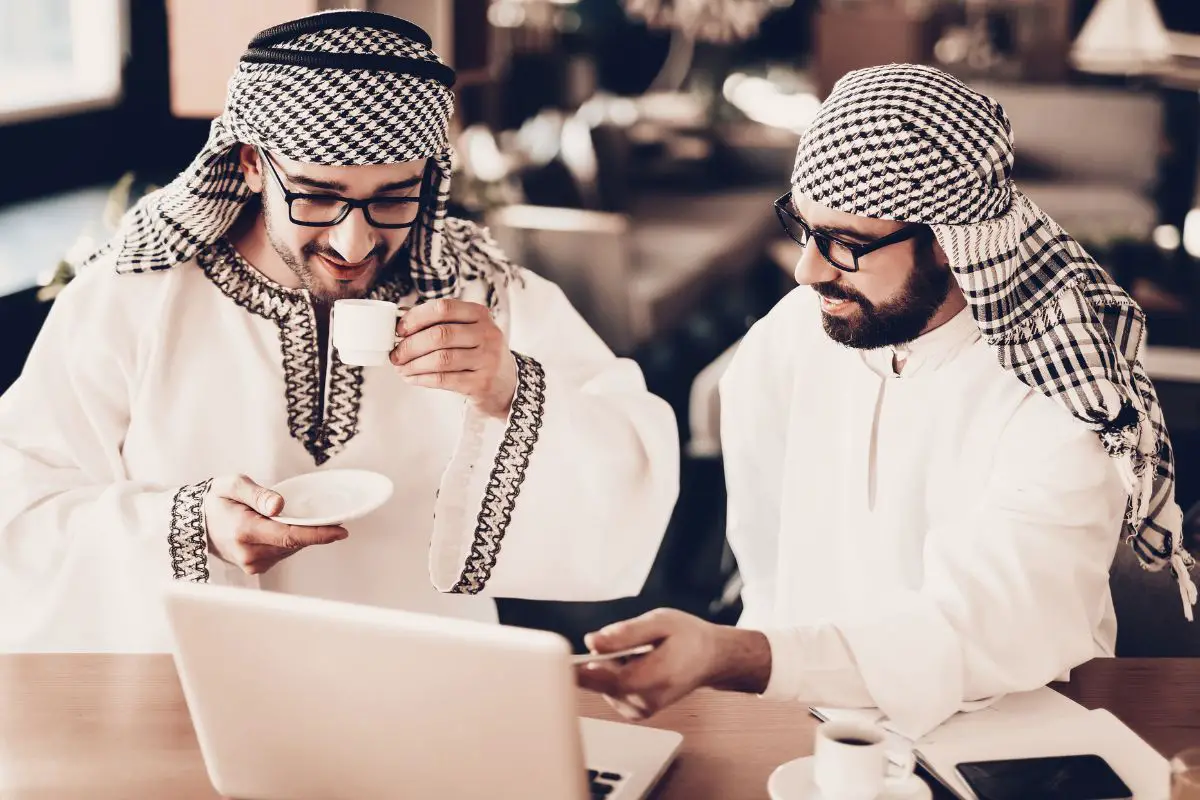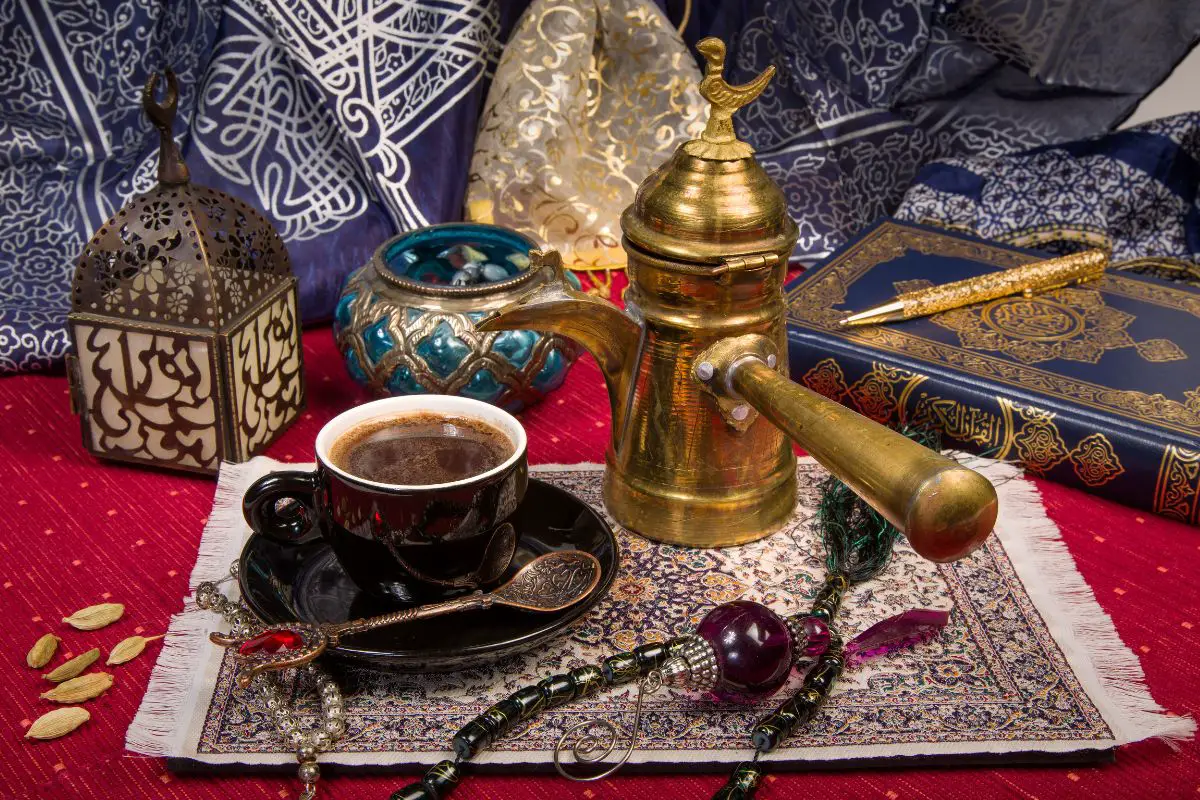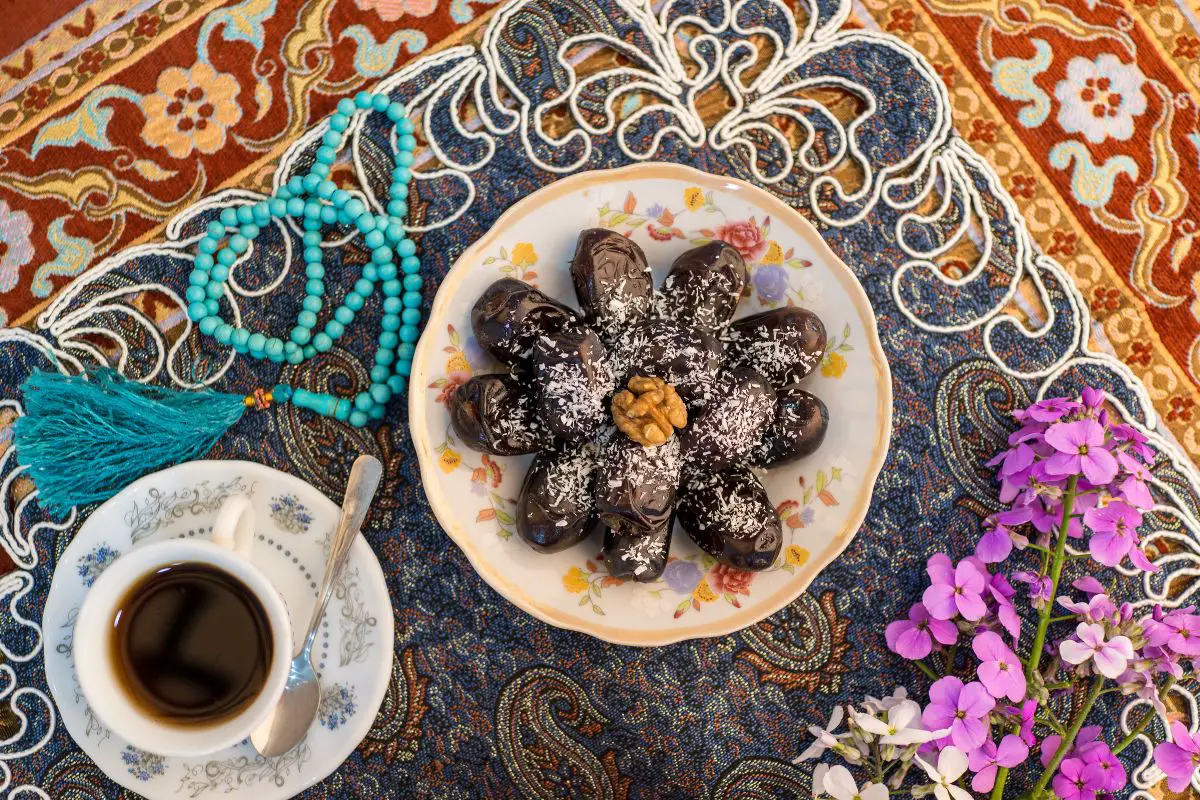In this article, readers will delve into the fascinating relationship between coffee and Middle Eastern politics, exploring its historical and cultural roots while examining its symbolic and strategic importance in the world of diplomacy. The journey begins with the origins and spread of coffee consumption in the Middle East, highlighting its social significance through the emergence of coffeehouses and traditional gatherings. The article then delves into the role of coffee in political negotiations, discussing its symbolic meaning, hospitality aspects, and contribution to maintaining focus during talks. As the narrative unfolds, readers will discover how coffee has influenced political alliances and power dynamics in the region, as well as some notable historical instances of its use in politics. Finally, the article examines the fusion of coffee with modern political negotiations, considering the impact of globalization and the future trends of coffee use in Middle Eastern politics.

Historical Background of Coffee in the Middle East
Origins of coffee consumption in the Middle East
The history of coffee in the Middle East can be traced back to the 15th century when it was first consumed in the Sufi monasteries of what is now modern-day Yemen. The Islamic mystics, who pioneered the cultivation and roasting of coffee beans, embraced the energizing effects of this exotic new beverage, which was believed to promote a heightened state of focus and contemplation among its drinkers. These Sufi monks cultivated and exported coffee beans from Yemen to various parts of the Islamic world, where coffee plantations were established in North Africa, southern Arabia, and Persia.
The Yemeni city of Mocha, situated on the Red Sea, was one of the earliest and most significant ports for coffee trade in the region. By the end of the 15th century, Mocha became the predominant center of coffee production and trade, linking the Arabian Peninsula with the vast markets of Asia, Africa, and Europe.
The spread of coffee throughout the region
The popularity of coffee rapidly spread across the Middle East. Coffee’s spread through the Islamic world was facilitated by the extensive network of Islamic trade routes. Coffee became a popular commodity in the Ottoman Empire, which spanned three continents, introducing coffee to its territories in Europe, Asia, and Africa. By the 16th century, coffee had reached Egypt, Palestine, Syria, and Turkey.
Coffee’s introduction to Europe was prompted by the European colonization of the Middle East and North Africa during the 17th century and the subsequent establishment of European trade networks. The Ottoman Empire, in particular, played a pivotal role in introducing the beverage to the West. Istanbul became a major hub for coffee trade, and from there, coffee spread to major European cities such as Venice, Vienna, and Paris.
The emergence of coffeehouses (qahwa)
By the early 16th century, the concept of the coffeehouse, or qahwa, had emerged as an integral part of Middle Eastern society. These social hubs served as vital venues for community gatherings, intellectual discourse, and political discussion, offering a unique space where people from various social classes could come together and engage in conversation.
One of the first documented coffeehouses opened in the Ottoman capital, Constantinople (now Istanbul), in 1554. The coffeehouse phenomenon quickly spread throughout the empire, becoming particularly prevalent in Cairo and Damascus, where they played an essential role in fostering the exchange of ideas and information among the diverse populations of these cosmopolitan centers.
In addition to being a popular meeting place for men of various social ranks, coffeehouses also played a significant role in the promotion of the arts. Music and poetry performances were common occurrences within the walls of these establishments, where professional musicians, poets, and performers shared their talents with the coffeehouse patrons.
Coffee in traditional Middle Eastern social gatherings
Coffee has long been an essential element of social interactions and ceremonies in Middle Eastern cultures. The act of serving and drinking coffee is an important tradition that symbolizes hospitality, friendship, and respect.
In traditional Bedouin society, coffee is customarily prepared as part of an elaborate ritual that involves roasting, grinding, and brewing the beans in a dallah, a special coffee pot. The freshly brewed coffee is poured from the dallah into small cups called finjans, and guests are expected to partake in at least three servings of the beverage. This practice of serving coffee as a sign of warmth and goodwill extends throughout the Middle East, where offering a cup of coffee to visitors remains an important gesture of welcome.
Both coffeehouses and private households in the Middle East are often filled with the intoxicating aroma of freshly brewed coffee, mixed with spices unique to regional preferences. In Saudi Arabia, for instance, it is common to find coffee flavored with cardamom, while in Lebanon, coffee is customarily prepared with a dash of orange blossom water.
The social value of coffee in Middle Eastern culture is a testament to its enduring influence and appeal. From its humble beginnings as a soothing beverage enjoyed by Sufi mystics to its present-day status as both a daily staple and a symbol of welcoming hospitality, coffee continues to occupy a cherished place in the hearts and traditions of the Middle East.
The Role of Coffee in Political Negotiations
Coffee has played a significant role in human history and culture for centuries. In the context of political negotiations, this seemingly ordinary beverage takes on a more profound symbolic significance. In this article, we will explore the various ways that coffee has been used throughout history to convey messages of unity, hospitality, trust, and focus during political talks and how its presence at important gatherings continues to influence modern diplomacy.
Symbolic significance of coffee in Middle Eastern diplomacy
In Middle Eastern culture, coffee holds a special place as a symbol of hospitality and respect. The preparation and serving of coffee during meetings, particularly those of a political nature, is an expression of goodwill and openness among the parties involved. In Yemen and Saudi Arabia, for example, guests are typically served a small cup of coffee known as qahwa, which is often accompanied by locally grown dates. Serving coffee to opponents during diplomatic negotiations helps to create a sense of closeness and an atmosphere conducive to open dialogue.
In the Ottoman Empire, coffee had become a symbol of power and prestige, as its importation and consumption were strictly regulated by the ruling elite. The use of coffee at official gatherings and political meetings was meant to signal the wealth and sophistication of the host. In this context, the presentation of coffee during negotiations helped to create a sense of mutual respect and shared interests between parties.
Traditions surrounding the serving of coffee in political meetings

The process of preparing and serving coffee can be seen as a form of diplomatic protocol in political meetings. In traditional Ethiopian culture, for instance, a coffee ceremony is performed to honor guests and welcome them into a home or gathering. The host carefully roasts and grinds the coffee beans before brewing the beverage in a special clay pot called a jebena. The coffee is then served in small cups, usually accompanied by a snack or light meal. This elaborate ritual, which can take several hours to complete, serves as an icebreaker between parties and creates a relaxed atmosphere for conversation and negotiation.
Similarly, in Bedouin societies, coffee plays an important role in local gatherings and tribal disputes. The drink is customarily prepared and served by the host or a designated mediator, and participants engage in discussions while sipping the caffeinated beverage. In this context, the drinking of coffee represents a commitment to peaceful resolution and civility among opposing parties.
Sharing of coffee as a gesture of hospitality and trust
Across cultures, the sharing of coffee during political negotiations is seen as evidence of goodwill between the parties involved. By serving their guests coffee, hosts convey a message of welcome and demonstrate their commitment to fairness and diplomacy. This gesture helps to establish trust and rapport between individuals who might otherwise be wary of each other’s intentions.
In addition to offering a sense of familiarity and comfort, the experience of drinking coffee together can create an environment in which barriers of communication are dissolved, leading to more open and fruitful diplomatic discussions. In some cultures, refusing the offer of coffee during a meeting could be perceived as an insult or indication of animosity.
Importance of coffee for maintaining focus during negotiations
Aside from its cultural and symbolic significance, coffee also plays a practical role in the navigation of complex political negotiations. As a psychostimulant, caffeine helps to sharpen focus, decrease fatigue, and improve cognitive function— all necessary components for conducting successful diplomatic talks. The consumption of coffee during negotiations can contribute to an increased state of alertness and a more efficient decision-making process.
In conclusion, coffee has a multifaceted role in the realm of political negotiations, serving as a symbol of hospitality and respect, a social lubricant, and a tool for maintaining mental acuity. As a seemingly simple yet powerful beverage, its presence in critical discussions illustrates the importance of allowing cultural and personal traditions to intertwine with political agendas.
The Influence of Coffee on Political Alliances and Power Dynamics
The role coffee has played in shaping the global geopolitical landscape is often overlooked or underappreciated. With its roots dating back to the 15th century, it became an influential commodity across the Middle East, Europe, Africa, and the Americas, involving the intertwining of trade, politics, and social practices. Coffee’s influence on political alliances and power dynamics can be explored through its impact on foreign policy and international relations, its status as a strategic resource, its utilization in the design of coffeehouses for political discourse, and the relationships built through the coffee trade.
Impact of coffee trade on foreign policy and international relations
The coffee trade has long entwined itself with foreign policy, with trade negotiations and treaties often focusing on coffee exportation and taxation. The birth of the global coffee trade is largely credited to the Ottoman Empire, which dominated coffee production and distribution during the 16th and 17th centuries. To maintain this influence, the Ottomans established strong ties with coffee-producing territories like Yemen, often involving the use of diplomacy and even military power.
As Europe’s taste for the beverage expanded, the desire for coffee paved the way for European powers to strengthen their foreign relations with coffee-growing regions. For instance, the Dutch East India Company played an integral role in the establishment of the Kingdom of Kaffa (present-day Ethiopia) to ensure access to coffee beans. Similarly, French and British colonizers turned to Africa and the Americas to secure coffee-producing territories, which involved the forging of political alliances with local leaders.
Additionally, the demand for coffee exposed the need for labor, fueling the growth of the transatlantic slave trade, which in turn had a profound impact on the foreign policies of involved nations up to the abolition movement.
Coffee as a strategic resource in regional politics
Coffee has long been a strategic resource, with countries carefully managing its supply and distribution to meet demand and maintain stability. For example, the Ottoman Empire implemented stringent regulations on coffee production, distribution, and consumption to retain control over this valuable resource.
In modern times, coffee-producing countries leverage their position to negotiate trade deals and secure influence in regional politics. The International Coffee Agreement (ICA) is one such example, which was established in 1962 to stabilize coffee prices on the world market and assist in economic development efforts in coffee-producing countries.
The use of coffeehouses for political discussions and networking
Since their inception, coffeehouses have served as crucial venues for political discussions and networking. In the 17th and 18th centuries, coffeehouses became important meeting places for intellectuals, artists, writers, and politicians to exchange ideas and engage in debates concerning the future of their nation and the world.
During the Enlightenment, philosophers gathered in coffeehouses to discuss ideas relating to science, politics, religion, and economics. In England, coffeehouses were nicknamed “penny universities” as they provided access to the latest news and ideas for a mere penny – the cost of a cup of coffee. The growth of print media only furthered the importance of coffeehouses as hubs for political discussion and engagement.
Even today, numerous leaders, politicians, and thinkers meet in coffeehouses across the world to discuss current events and develop plans for enacting change.
Connections between coffee trade and political alliances
Many political alliances have been built on the back of the coffee trade, particularly between coffee-producing and coffee-consuming countries. For example, relationships between European colonial powers and African and South American countries were often centered around securing access to coffee-producing territories.
As the global coffee market evolved, so too did the political alliances associated with it. The establishment of coffee cooperatives and federations allowed producing nations to collaborate and form partnerships, giving them increased bargaining power and the ability to negotiate better prices and trade terms. These alliances also paved the way for collaboration on issues beyond the scope of the coffee trade, such as climate change, infrastructure development, and education initiatives.
Ultimately, the influence of coffee on political alliances and power dynamics is both wide-reaching and deeply ingrained in global history. The commodity has played a significant role in shaping foreign policies, international relations, and the formation of strategic alliances for centuries, and it remains a crucial factor in modern geopolitics.
Notable Historical Instances of Coffee in Middle Eastern Politics
Role of coffee in the Ottoman Empire’s political sphere
The relationship between coffee and Middle Eastern politics dates back to the Ottoman Empire. This bean-based beverage, which was first consumed in the Arabian Peninsula during the 15th century, quickly gained popularity among the Ottomans, becoming an integral part of their culture and daily life, both for the ruling class and ordinary people alike.
Coffee was not merely a source of energy or enjoyment; it became a sophisticated component of political life, playing an important role in the development of the Ottoman Empire’s bureaucratic system by serving as a lubricant that eased social gatherings and fostered political networking. The coffeehouse (or “kahvehane”) was a venue where people from different walks of life could meet, discuss and exchange ideas, making it an ideal place for members of the ruling class to build alliances, negotiate policies, and conduct affairs of state.
However, the coffeehouse’s association with politics also attracted attention from the authorities. Fearing that these venues could become hotbeds of subversive and anti-establishment activity, several Ottoman sultans attempted to ban coffeehouses or their attendant music and poetry, thus directly impacting the political atmosphere of their time.
Coffee and diplomacy during the Arab-Israeli peace talks

As the Arab-Israeli peace talks approached, negotiators from both sides used coffee as a means of fostering goodwill and creating a more open and amicable atmosphere, that was more conducive to fruitful discussions.
In some cases, coffee diplomacy was quite literally taken to a new level, as demonstrated by then Israeli Foreign Minister Abba Eban, who was known to impress his Arab counterparts with his command of Arabic, as well as his knowledge of Arabic coffee etiquette. This approach encouraged a more congenial environment for negotiations and helped bridge the cultural and political divide between the parties, contributing to the development of rapport that would be crucial in securing peace agreements.
Usage of coffee in the Iranian Revolution’s planning and organization
Coffee played a significant role in the Iranian Revolution, serving as a backdrop for revolutionary discussions and organizing across the country. The Iranian revolutionaries, who were plotting the overthrow of the Shah’s regime, sought refuge in coffeehouses, where they hashed out their plans over cups of strong, black coffee.
Coffeehouses served as informal headquarters for revolutionaries and opposition leaders when more formal meeting places were either surveilled or not conducive to the secretive nature of the discussions taking place. Coffee became a symbol of cultural and political invigoration; a bridge between old traditions and new aspirations.
Influence of coffee during the Camp David Accords
Coffee diplomacy played a significant part in the negotiations that led to the Camp David Accords, the historic peace agreement between Egypt and Israel. Coffee was used as a way of establishing trust and fostering connections between the participants, helping to break down barriers and create a more relaxed, open atmosphere.
For example, during the initial stages of the talks, then Egyptian President Anwar Sadat and Israeli Prime Minister Menachem Begin exchanged gifts of coffee, signaling their willingness to engage in communication and their readiness to foster a friendly environment for fruitful discussions. Coffee soon became an important element of the daily meetings, facilitating a spirit of cooperation and trust between both sides.
The Camp David Accords remain a testament to the power of coffee in diplomacy and its ability to foster understanding, trust, and cooperation between rival factions, proving that even the humblest of beverages can have a powerful impact on the course of history.
Fusion of Coffee and Modern Political Negotiations
The history of coffee is deeply intertwined with politics and diplomacy. Since its origins in the Middle East, coffee has played a crucial role in bonding people and forging alliances across different societies. Intriguingly, the beverage remains a catalyst for political negotiations in today’s increasingly globalized and interconnected world.
The persistence of traditional coffee customs in contemporary diplomacy
Coffee has long been a ceremonial symbol of hospitality and an important aspect of Middle Eastern diplomacy, with a rich history of Arabian coffee houses as centers of political discussions and deal-making. This tradition continues in modern times as global leaders recognize the value of employing ancient coffee customs to foster trust, respect, and goodwill.
One such example is Turkish coffee diplomacy, which aims to foster relationships between nations through the sharing of this traditional beverage. Turkey’s hosting of international coffee festivals and its bid for UNESCO Intangible Cultural Heritage recognition for the Turkish coffee tradition exemplify the importance that coffee plays in official diplomacy and cultural exchange.
Furthermore, hospitality plays a significant role in Arab customs and traditions, and coffee remains at the centerpiece of this cultural practice. Serving coffee to guests, be it in a family setting or a political negotiation, is an important gesture of goodwill and respect. The process of coffee preparation and serving, as well as the conversation that occurs during these events, all contribute to fostering trust, friendship, and cooperation.
Impact of globalization and corporate coffee culture on political negotiations
Today’s political negotiations are heavily influenced by globalization, and as a result, coffee has become an essential fixture across global meeting rooms and summits. The ubiquitous presence of corporate coffee culture, epitomized by Starbucks and other multinational coffee chains, ensures that coffee remains a staple in political discourse around the world.
Moreover, coffee’s ability to build bridges is not limited to the Middle East. As globalization expands, coffee chains function as a familiar and neutral setting for politicians and diplomats, providing a suitable environment to discuss sensitive issues. For example, in 2013, Starbucks CEO Howard Schultz hosted a summit at the company’s Washington, D.C., location, bringing together lawmakers from both sides of the aisle in an effort to resolve the federal government shutdown. This highlights the potential of coffee to act as both a literal and symbolic mediator in the quest for common ground.
Examples of coffee’s role in modern Middle Eastern political events
In recent years, coffee has continued to be a crucial aspect of political negotiations in the Middle East. For instance, in 2015, the leaders of Israel and Palestine met to negotiate their differences and explore avenues for peace, and coffee was integral to these discussions. The then Israeli Minister of Foreign Affairs, Silvan Shalom, hosted a coffee break at his home in Jerusalem, creating an opportunity for the adversaries to engage in informal and constructive dialogue.
Moreover, during the ongoing Syrian conflict, coffee has remained an essential part of the peace processes. In 2016, UN-brokered peace talks were held in Geneva to discuss possible resolutions to the crisis, during which coffee played a significant role in facilitating conversation between delegations.
Future trends and prospects for coffee in Middle Eastern politics

As global diplomacy evolves, it is anticipated that coffee will continue to play an influential role in the Middle Eastern political landscape. With the rise of coffee houses as social hubs for youth in the region, it is projected that future generations of political leaders will be shaped by the discussions and debates that occur over a cup of coffee.
In summary, as the fusion of coffee and political negotiations grows stronger in today’s interconnected world, historical traditions of hospitality and diplomacy become ever more entwined in the fabric of modern Middle Eastern politics. As a result, it seems likely that the power of coffee, both as a symbol and a facilitator of conversation, will continue to nurture dialogue, forge alliances, and influence political decisions in the region and beyond.
FAQs on the Use of Coffee in Middle Eastern Political Negotiations
How has coffee played a role in traditional Middle Eastern political negotiations?
In Middle Eastern societies, coffee has held a significant role in political negotiations due to its unique symbolism as a gesture of hospitality and trust. Offering coffee to guests or adversaries during diplomatic talks often helped facilitate open dialogue and warm relations between parties (Willson, 2013).
Are there any historical references to coffee in Middle Eastern negotiations?
Historically, coffee originated in the Middle East, and its use in negotiations dates back to the Ottoman Empire (15th-20th centuries). Rulers and officials often shared coffee to seal agreements or form alliances, acknowledging the drink’s cultural significance in the region (İslamoğlu, 2004).
What does sharing coffee symbolize in Middle Eastern political contexts?
In Middle Eastern political contexts, sharing coffee symbolizes openness, trust, and goodwill between negotiating parties. The act of offering coffee demonstrates a willingness to listen, engage in meaningful dialogue, and seek mutually beneficial outcomes for relevant concerns (Willson, 2013).
How has modernization influenced the use of coffee in Middle Eastern negotiations?
While traditional coffee ceremonies remain present in some political negotiations, modernization has introduced new beverage preferences, such as tea or other refreshments. Nevertheless, coffee still maintains its cultural significance and relevance in these contexts, representing a means of fostering connections and mutual understanding (Willson, 2013).
Is the consumption of coffee limited to government officials during negotiations?
No, coffee consumption is not limited to government officials during negotiations. In Middle Eastern cultures, coffee is frequently served during all manners of social gatherings, including business meetings and informal discussions. Its consumption highlights the overarching theme of communal connection amongst individuals engaging in conversation (İslamoğlu, 2004).